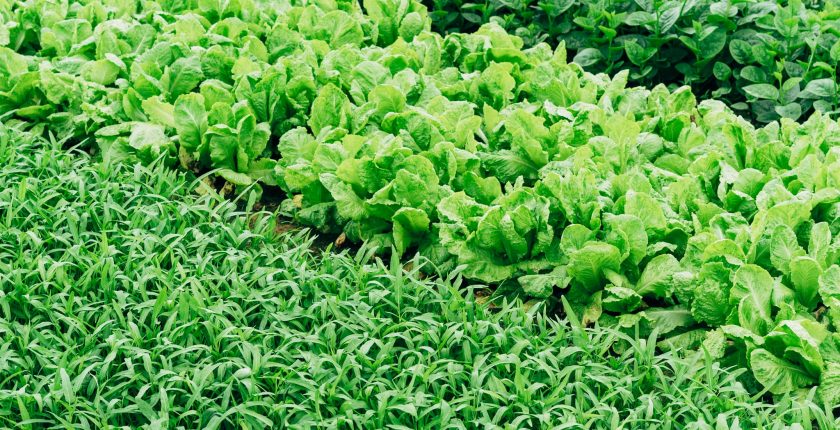The Role of Small-scale Farming in Tackling Food Insecurity – How Protecting Traditional Farming Knowledge Will Complement International Approaches.
The UN Food Systems Summit – An opportunity to Address the Issue of Food Insecurity
The upcoming UN Food Systems Summit, due to be held this month, is an opportunity to address the problem of food insecurity. There has been marked progress in tackling global hunger over the last few decades. However, despite this 2017 saw an increase in the number of people who go hungry, reported being around 820 million people globally (WHO, 2021). Of these, the largest number of undernourished people is situated in Asia, but countries in Africa and other middle-income nations experiencing economic have also been affected.
To enable the summit to be as impactful and relevant as possible the 5 UN Food Systems Action Tracks facilitated several public forums, consultations, and calls for submissions resulting in 15 Solution Clusters. These Solution Clusters consolidated the concerns and suggestions related to food security into practical objectives under 15 definitive topics, addressing the breadth and depth of the issue.
One of the Solutions Clusters aims specifically to highlight the role that traditional farming knowledge has in tackling hunger in poorer rural communities. Solution Cluster 4.1.1. – Empowering Communities Indigenous People and Traditional Knowledge, aims to protect and increase the role of traditional farming knowledge by facilitating the enhancement of these pieces of knowledge within the communities that most rely upon smallholder farming. Doing so will mitigate against poor nutrition and hunger in these communities by protecting local practices that sustain biodiversity, a key element in creating resilient farm systems. Enhancing traditional knowledge will also complement other international incentives to create sustainable food systems by increasing global understanding of how food systems impact and interact with the environment.
Small-scale Farmers – The Role of Traditional Farming Techniques in Protecting Biodiversity
Small scale farmers, particularly those located in parts of Asia and Sub-Saharan Africa, contribute 80% of the food consumed by their respective populations (Devex, 2021). Yet small-scale farmers also tend to be disproportionately economically poor and often live below the poverty line. Consequently, they are more likely to suffer from poor nutrition even as their livelihoods are situated in agriculture (Woodhill, 2020).
Many contributing factors have together created this situation. The pressure to maintain low food prices, market failures, poor infrastructure, land inequality, and corruption are just some of the issues that contribute to the general struggle encountered by small-scale farmers. One of the key drivers exacerbating poverty amongst small-scale farmers is the loss of biodiversity. This is because a lack of biodiversity has a detrimental impact on the environment creating severe problems for small-scale farmers who are often not well resourced enough to mitigate these effects.
The homogenisation of crops is one of the lead drivers of biodiversity loss. Demand for certain food products has shaped global food systems, reflecting a less varied diet and reducing biodiversity. There has been a 75% loss of plant genetic diversity on farms over the last 100 years, with just 4 groups (wheat, rice, maize, and soybean) providing 2/3s of human calories (Houngbo, 2020).
As traditional farming techniques give primacy to crop diversity, preserving this knowledge not only protects small-scale farmers but can also guide international solutions.
Solution Cluster 4.1.1 – Partnership Between Traditional Knowledge and Science Produces Innovative Solutions.
Solution Cluster 4.1.1; Empowering Communities: Recognising Rights, Indigenous Peoples, and Traditional Knowledge would enable marginalised small-scale farmers to access governance systems, facilitating more interconnected partnerships between small-scale farmers and international organisations. Evidence has shown that partnership between traditional farming methods and scientific knowledge can promote innovations that can aid in tackling the increasing pressure on food systems in the face of climate change and global population growth. Protecting and prioritising traditional knowledge is an important aspect in ensuring food security, not only for small-scale farmers and their local community but also the general global move towards a sustainable food system.
Bibliography
Chakamba, R,. (14th July 2021) More action needed to address smallholder farmer challenges, https://www.devex.com/news/more-action-needed-to-address-smallholder-farmer-challenges-100367
Woodhill, J., Hasnain, S. and Griffith, A. 2020. Farmers and food systems: What future for smallscale agriculture? Environmental Change Institute, University of Oxford, Oxford (https://www.eci.ox.ac.uk/research/food/downloads/Farming-food-WEB.pdf
Food Systems Summit 2021, (2021) Solution Cluster 4.1.1, Empowering Communities and Indigenous Peoples: Recognising Rights and Traditional Knowledge, https://foodsystems.community/empowering-communities-recognizing-rights-indigenous-peoples-and-traditional-knowledge/
WHO, (2021), World hunger is still not going down after three years and obesity is still growing – UN report, https://www.who.int/news/item/15-07-2019-world-hunger-is-still-not-going-down-after-three-years-and-obesity-is-still-growing-un-report
Williams, F,. (7th July 2021),. Putting food and agriculture at the heart of the global biodiversity framework, Putting food and agriculture at the heart of the global biodiversity framework (ifad.org)
Houngbo, G,. (23rd November 2020) Why small farms are key to the future of food – and how we can support them, https://www.ifad.org/en/web/latest/-/blog/why-small-farms-are-key-to-the-future-of-food-and-how-we-can-support-them

